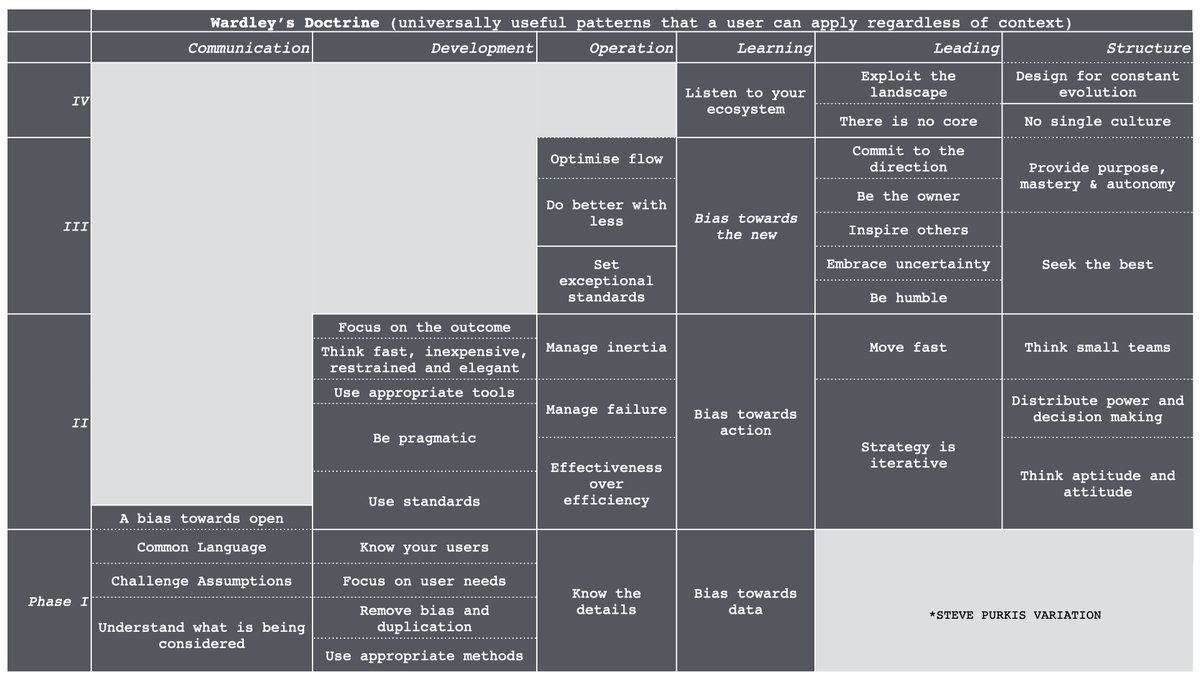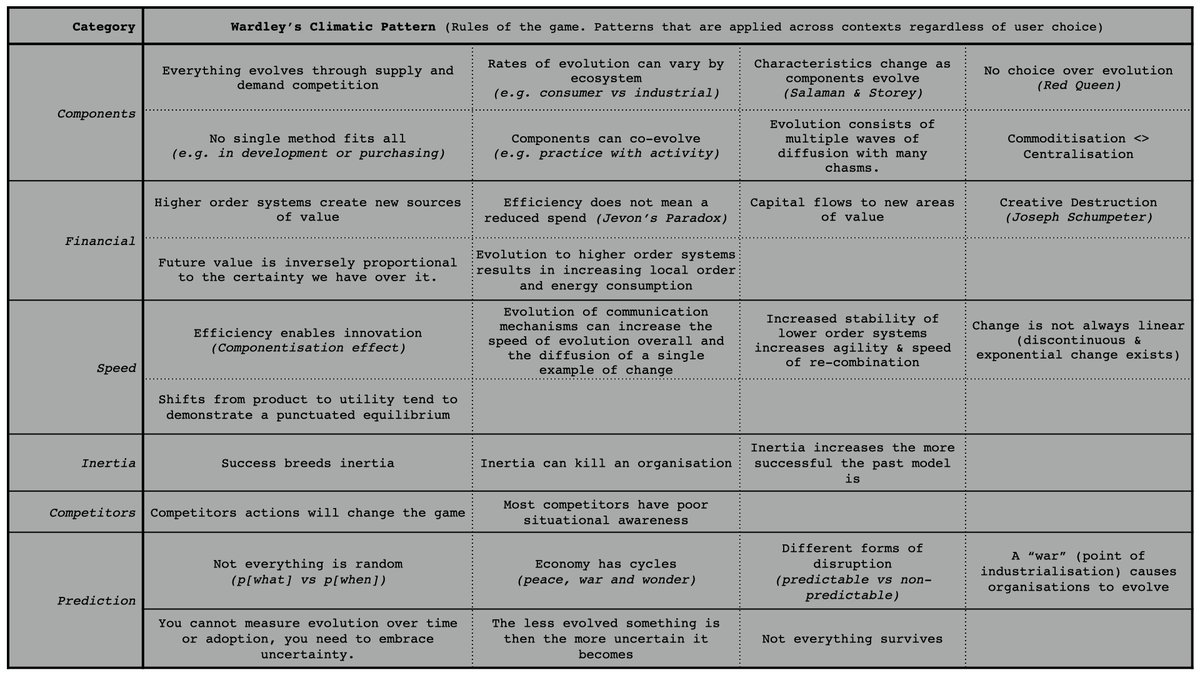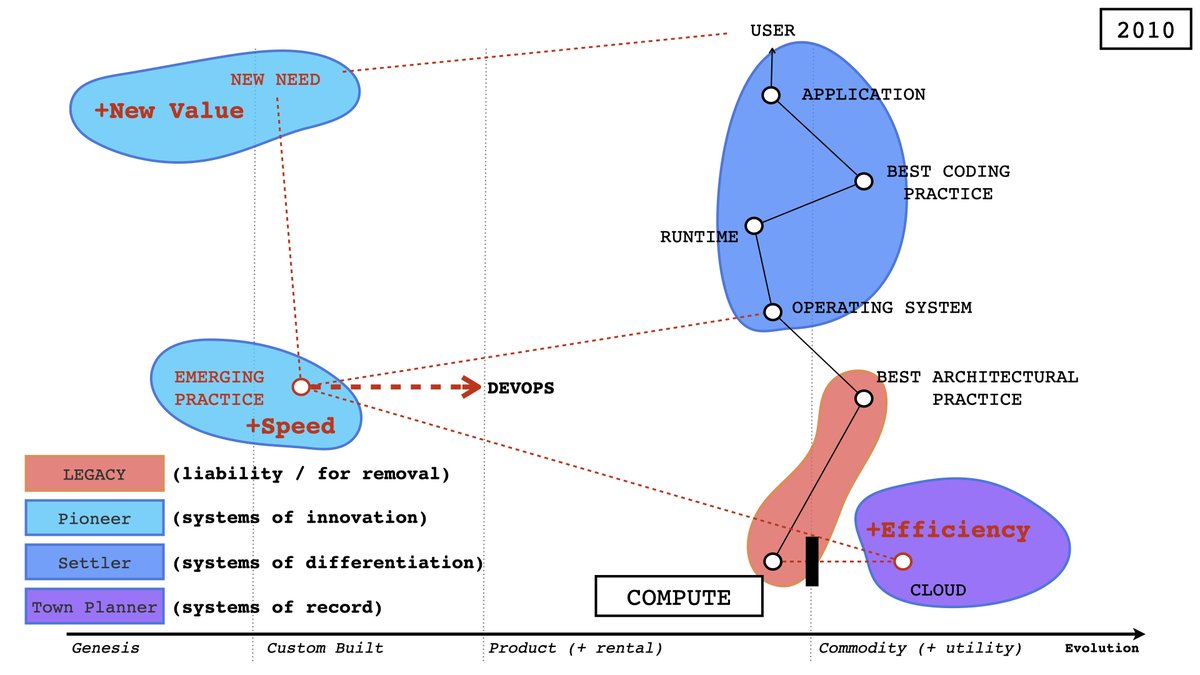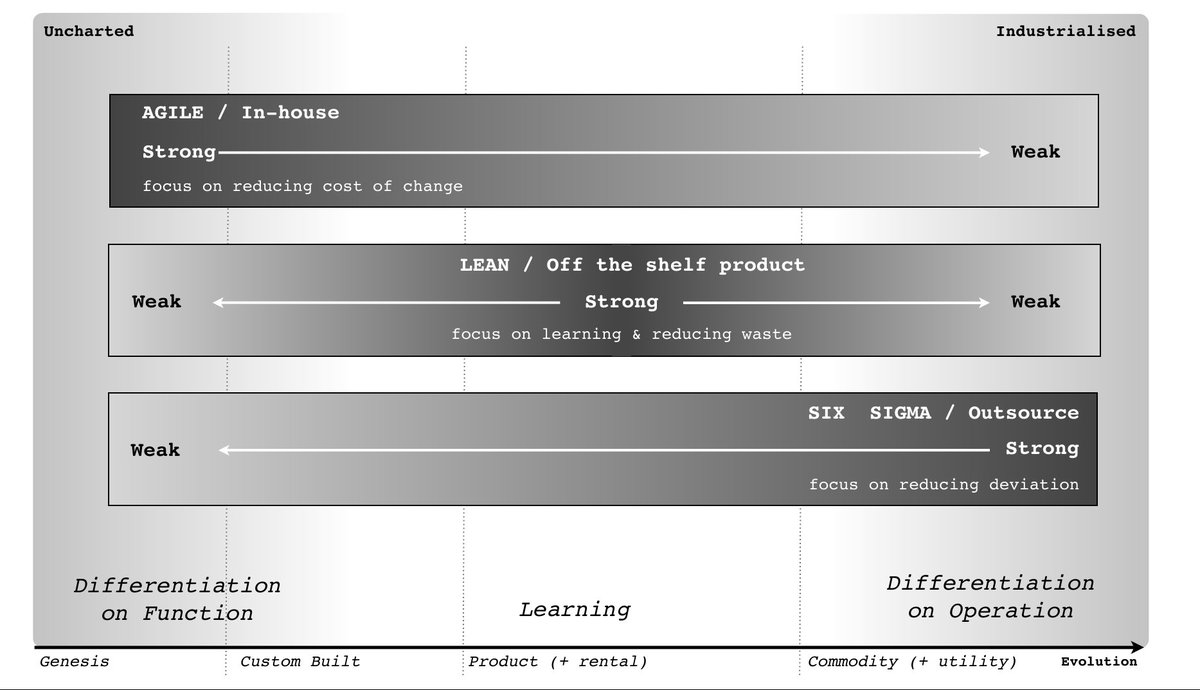Me : Structure against what? If you don't understand the landscape that you operate in then how do you structure around it? How do you decide what your operating model is? Awareness comes first and that needs those principles.
X : We need to adapt to our new reality.
Me : A question?
X : Should we start with organisation or operating model first?
Me : Neither. Start with doctrine i.e. basic principles of your company. This will lead you to landcape which will lead you to structure + operating model.
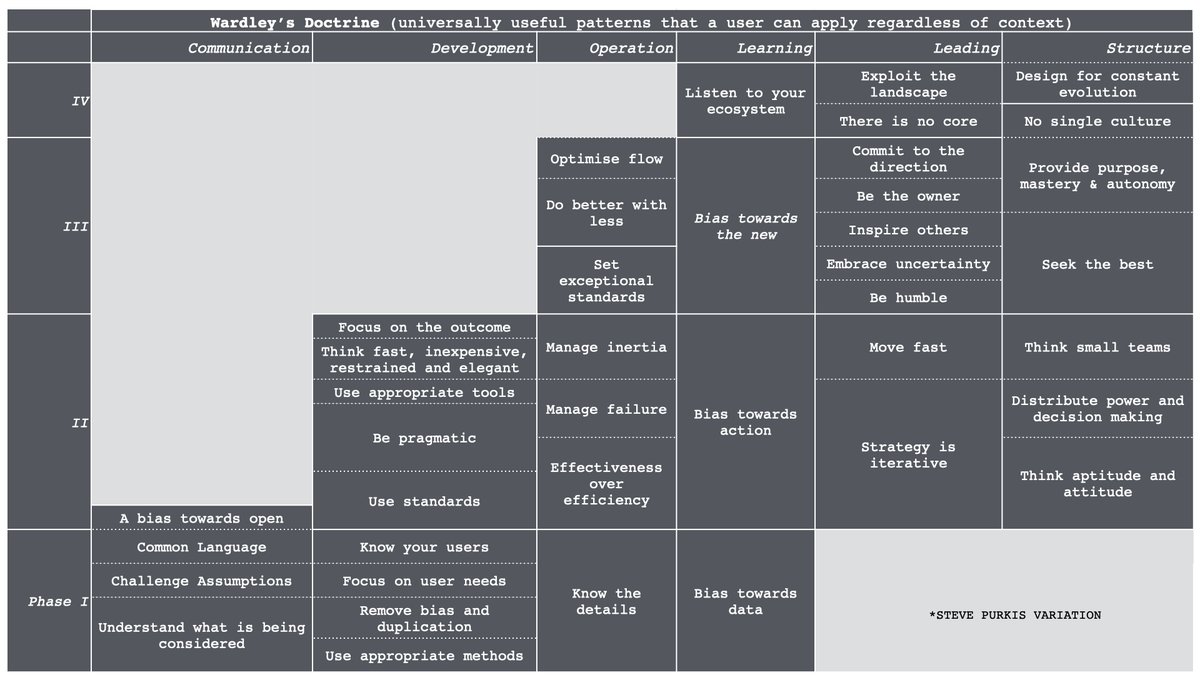
Me : Structure against what? If you don't understand the landscape that you operate in then how do you structure around it? How do you decide what your operating model is? Awareness comes first and that needs those principles.
Me : Pretend you're running a tea shop (I'm a Brit, I like tea shops). First thing you need to do is to know who your users are - the public, the business for example (there are more like regulators etc).
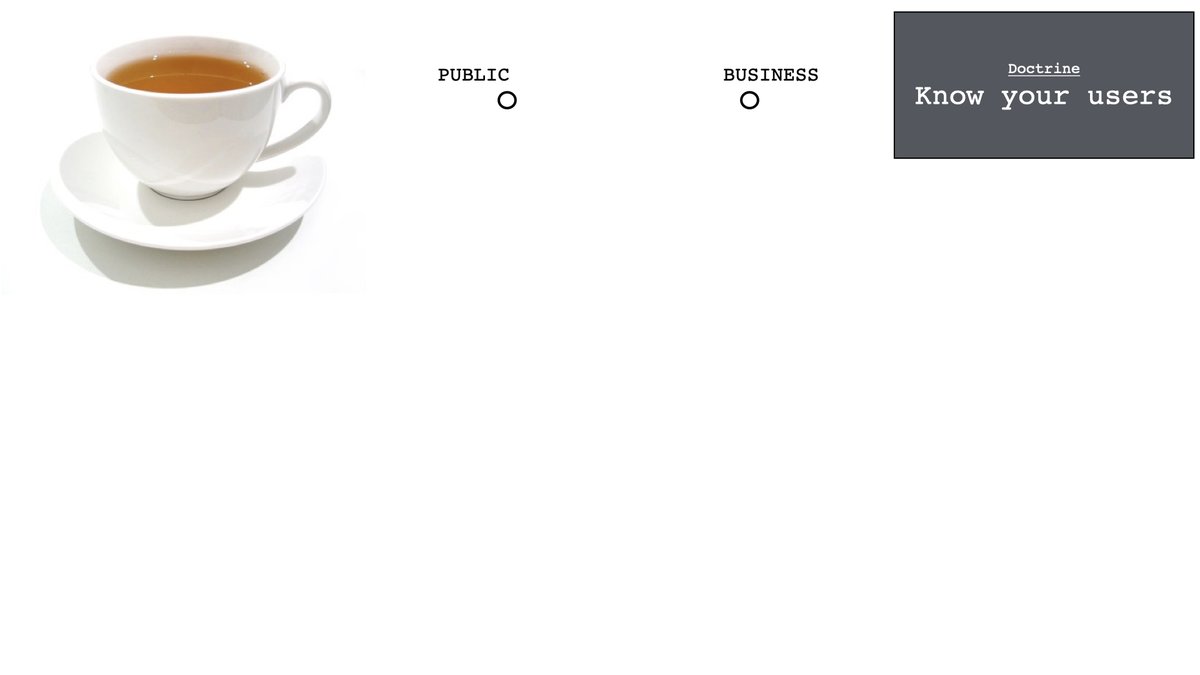
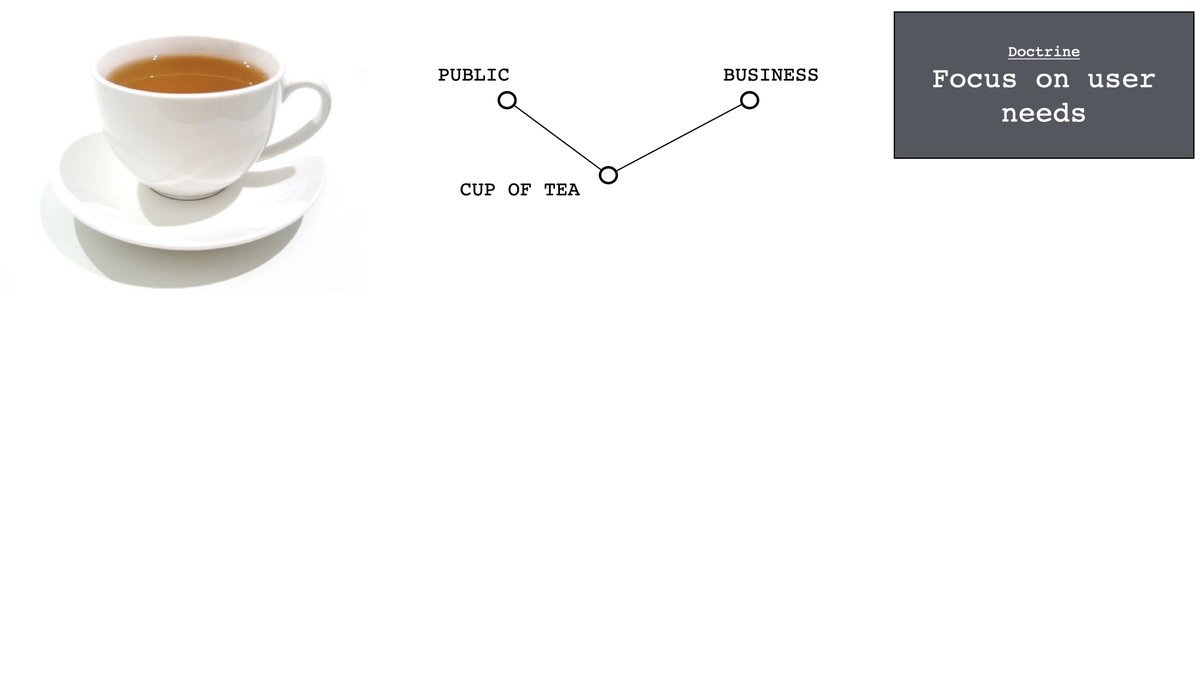
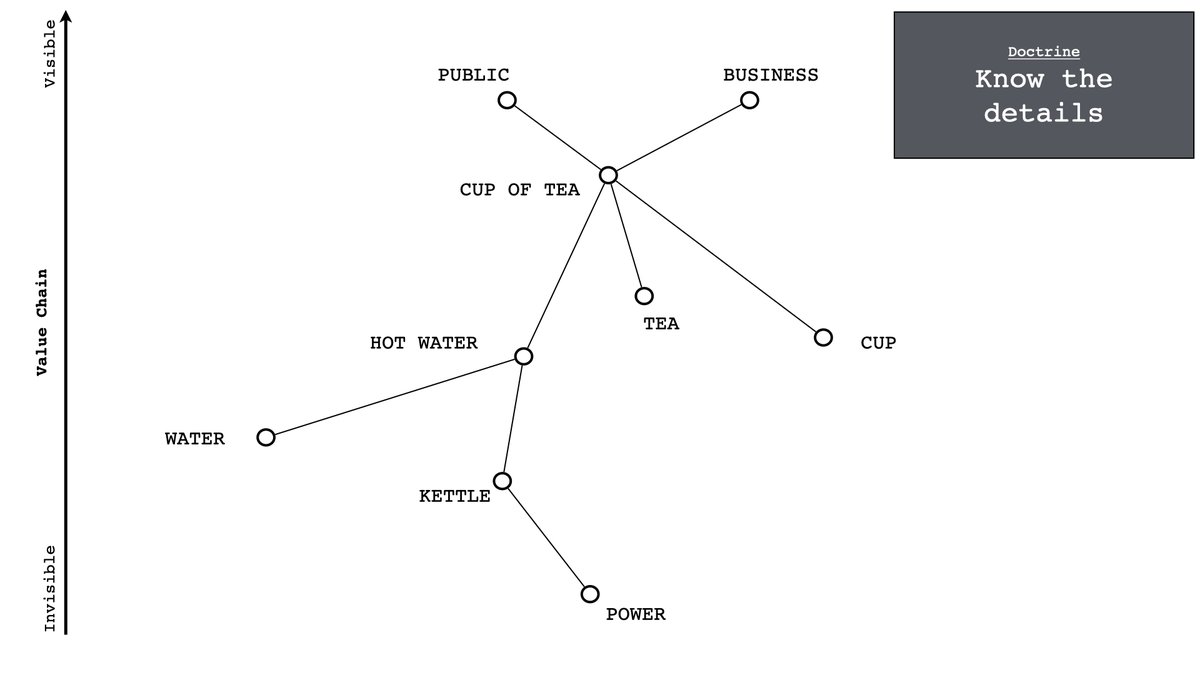
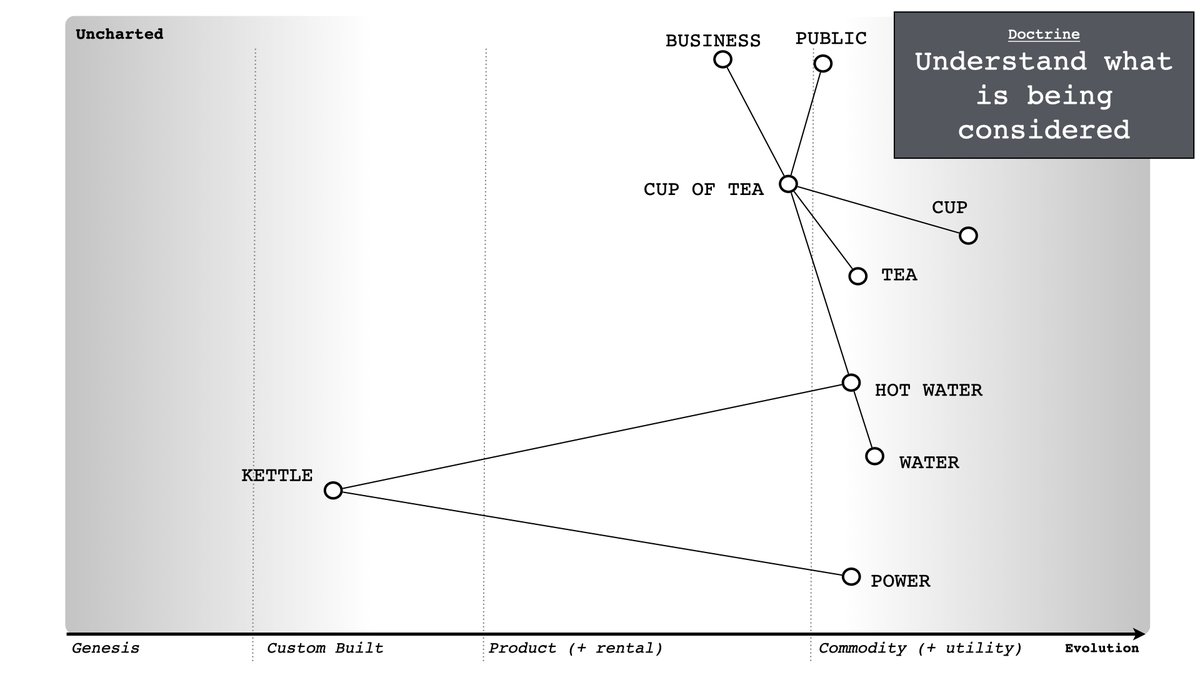
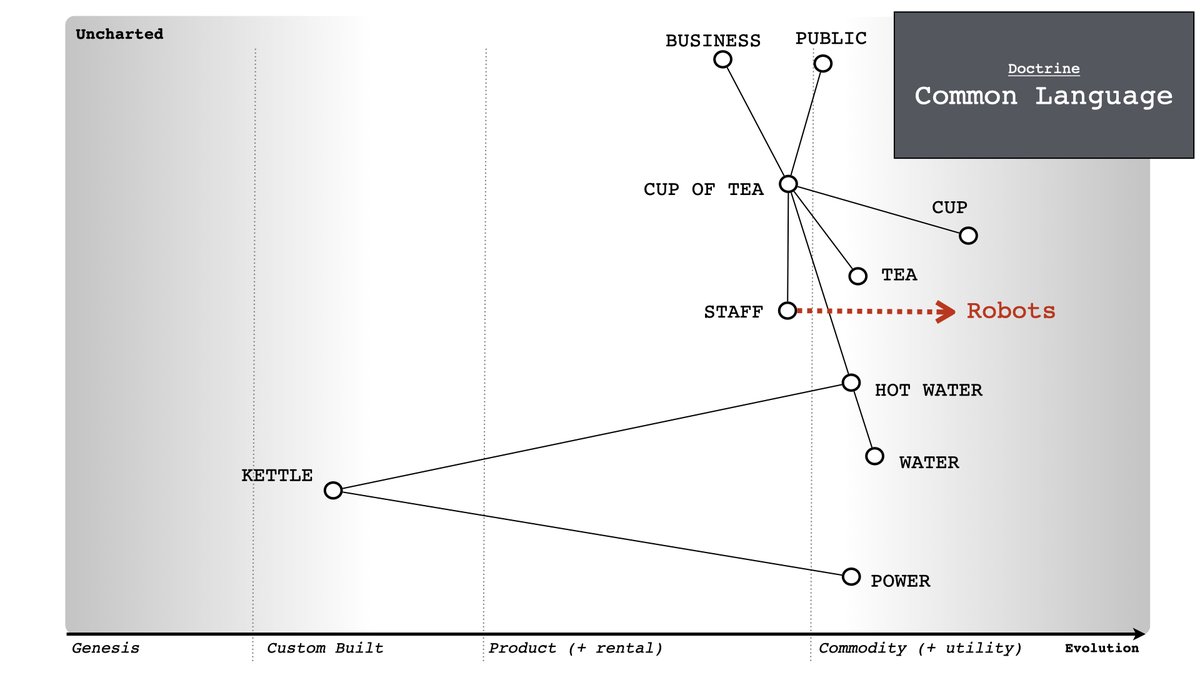
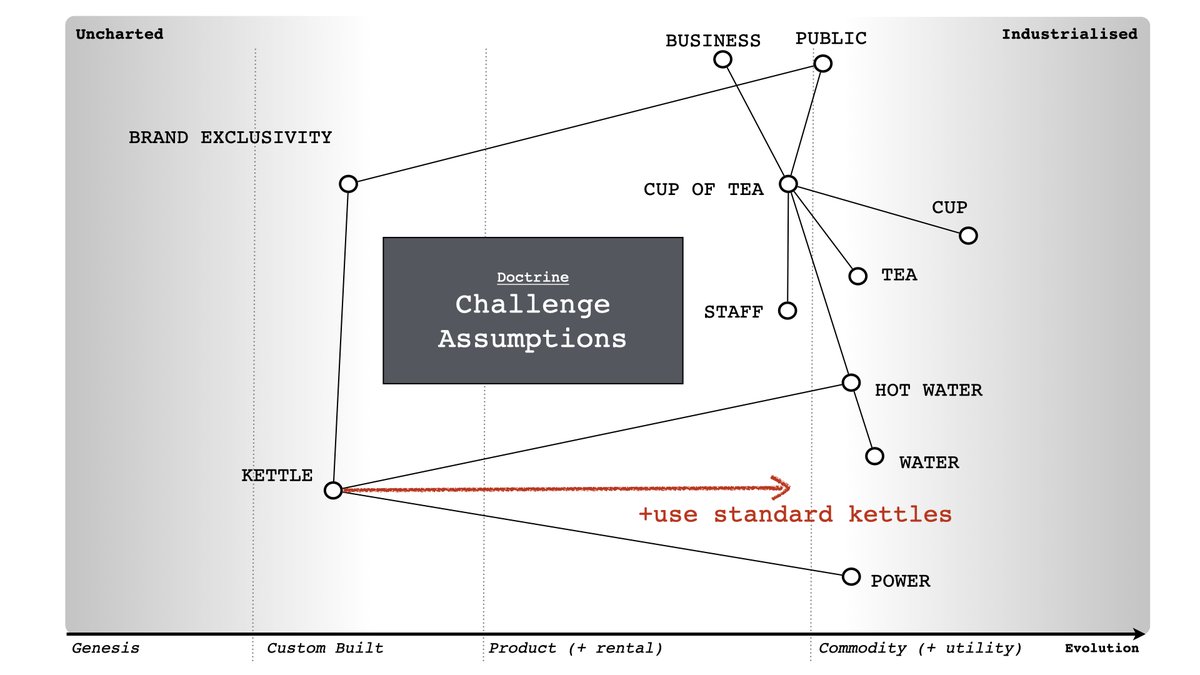
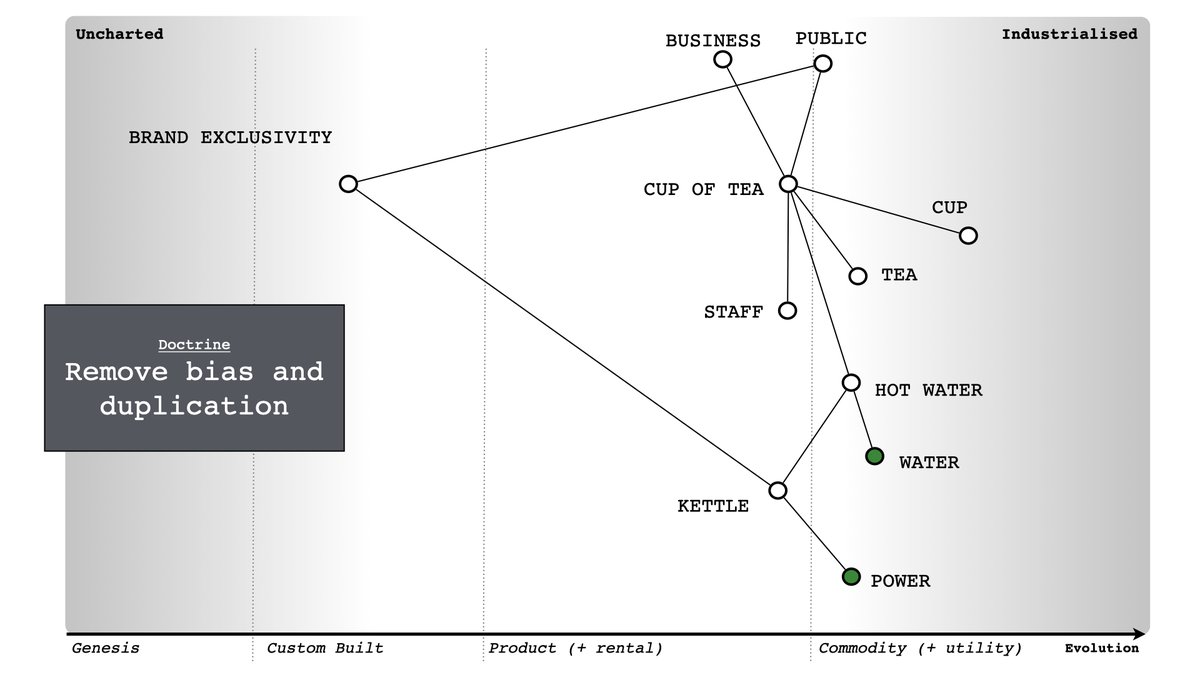
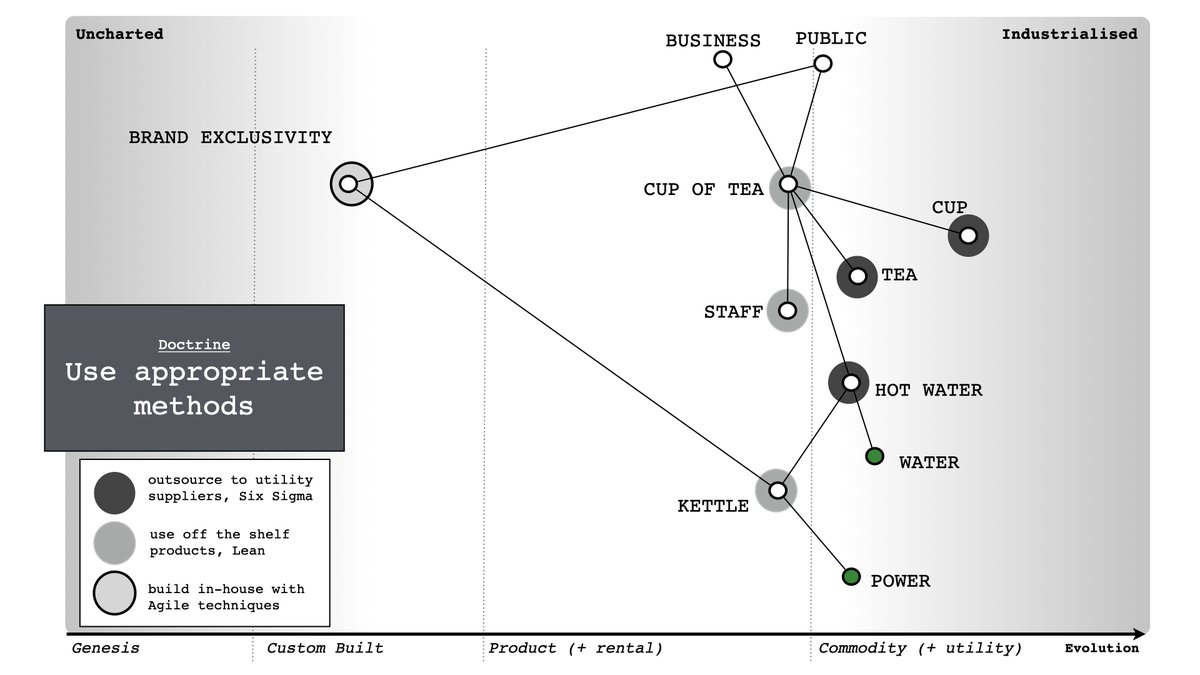
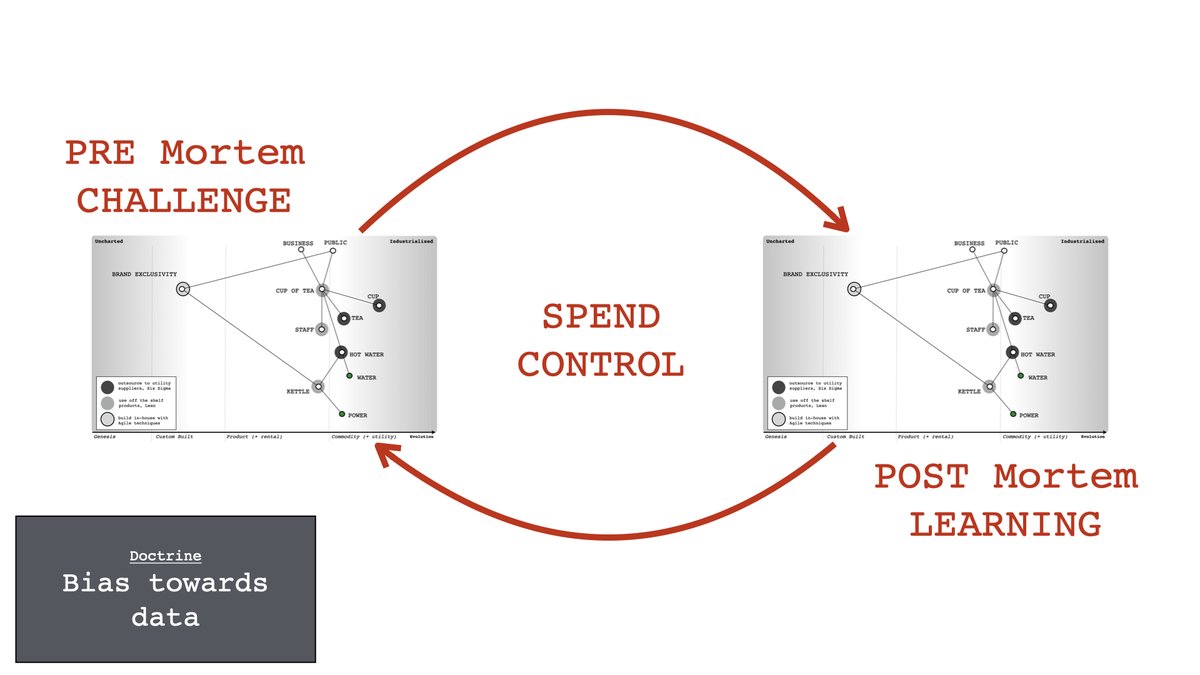
More from Simon Wardley
More from Life
You May Also Like
Krugman is, of course, right about this. BUT, note that universities can do a lot to revitalize declining and rural regions.
See this thing that @lymanstoneky wrote:
And see this thing that I wrote:
And see this book that @JamesFallows wrote:
And see this other thing that I wrote:
One thing I've been noticing about responses to today's column is that many people still don't get how strong the forces behind regional divergence are, and how hard to reverse 1/ https://t.co/Ft2aH1NcQt
— Paul Krugman (@paulkrugman) November 20, 2018
See this thing that @lymanstoneky wrote:
And see this thing that I wrote:
And see this book that @JamesFallows wrote:
And see this other thing that I wrote:

